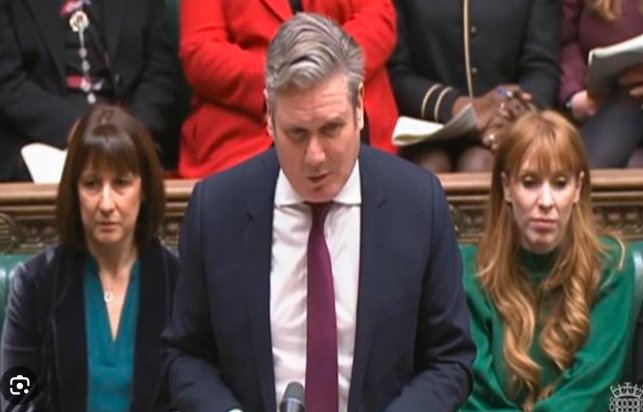Labour leader Keir Starmer has pledged to make the UK a “clean energy superpower” by 2030, as he visited Aberdeen to meet with workers and businesses in the renewable energy sector. He said that a Labour government would invest in green jobs, infrastructure and innovation, and support the transition from fossil fuels to clean energy sources.
Labour’s vision for a green economy
Starmer said that Labour’s vision for a green economy was based on five principles: fairness, security, opportunity, innovation and leadership. He said that Labour would ensure that no one was left behind in the shift to a low-carbon future, and that workers and communities affected by the decline of oil and gas would be given the support and skills they needed to thrive in new industries.
He also said that Labour would create a new public-owned green energy company, Great British Energy, which would be based in Scotland and would generate and sell clean power across the UK. He said that this would create thousands of jobs, cut energy bills and help the UK meet its climate targets.
Starmer said that Labour would also invest in green infrastructure, such as offshore wind farms, tidal lagoons, hydrogen plants and carbon capture and storage facilities. He said that these projects would boost the UK’s economy, create more green jobs and reduce greenhouse gas emissions.
He added that Labour would foster innovation and research in the green sector, and support the development and deployment of new technologies, such as electric vehicles, smart grids and batteries. He said that this would make the UK a global leader in clean energy and help the UK export its expertise and products to the rest of the world.

Labour’s contrast with the Tories
Starmer contrasted Labour’s ambitious plans with the Tories’ lack of action and commitment on climate change. He accused the Tory government of failing to deliver on its promises, such as banning new petrol and diesel cars by 2030, phasing out gas boilers by 2035 and reaching net zero emissions by 2050.
He said that the Tories were “out of touch” with the public and the scientific consensus on the urgency of the climate crisis, and that they were “putting ideology before common sense” by opposing public ownership and investment in green energy.
He also criticised the Tory government for cutting overseas aid, which he said was undermining the UK’s credibility and influence ahead of the COP26 climate summit in Glasgow in November. He said that Labour would restore the aid budget to 0.7% of gross national income, and use it to support developing countries in tackling climate change and poverty.
Labour’s appeal to Scottish voters
Starmer also used his visit to Aberdeen to appeal to Scottish voters, who have largely deserted Labour in favour of the SNP in recent years. He said that Labour was the only party that could deliver both social justice and climate justice, and that Labour was the only party that could unite the UK and prevent another divisive referendum on Scottish independence.
He said that Labour would work with the Scottish government and other devolved administrations to deliver a green recovery from the Covid-19 pandemic, and that Labour would respect and strengthen the devolution settlement, rather than undermine it like the Tories.
He also said that Labour would stand up for the interests of Scotland and the whole of the UK in the international arena, and that Labour would rebuild the UK’s reputation and relationships after the damage done by Brexit.
He concluded by saying that Labour was the party of hope and change, and that he was determined to win back the trust and support of the Scottish people.


















